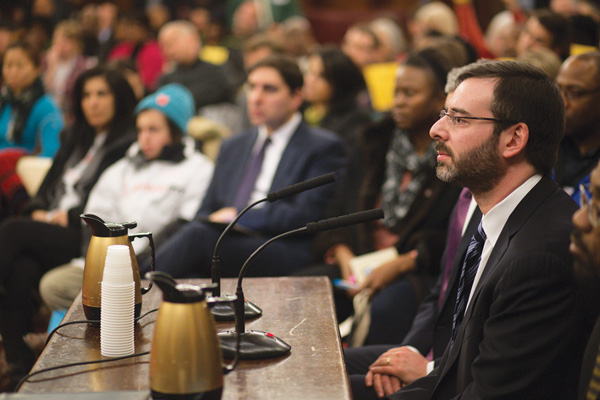
BY RICK LASSIN | On Jan. 20 Airbnb came head to head with New York City lawmakers at a hearing in an effort to change the “Vacation Rental Ban” law of 2010. The City Council’s main concern is that a few hosts are reaping the majority of rewards on airbnb by conducting illegal hotel activity.
Illegal hotels increase the already-serious New York City housing crisis, and can endanger both travelers and the communities in which these illegal hotels operate. In short, the City Council is intent on making businesses comply with the existing law while the law’s opponents are attempting to change it.
Regardless of whether or not you believe the law should be amended, it does not change the fact that businesses must adhere to the law as it is currently written. This is not to say that such adherence does not come at a cost — in fact quite the opposite is true. Some residential leasing-brokerage firms that used to operate in a similar manner to platforms like airbnb have adapted and reinvented themselves in order to comply with the enactment of the 2010 law.
One such example is New York Habitat, a licensed brokerage firm specializing in short-term furnished rentals, which removed 90 percent of its vacation rental inventory in order to comply with the implementation of the 2010 law.
Despite this hurdle, New York Habitat (www.nyhabitat.com) has rebuilt its database one listing at a time by identifying apartments in compliance with the law.
In short, New York Habitat pulled its newly illegal listings — in dwellings of three or more units — and focused on rebuilding that database from single-family homes, duplexes and eligible hotels. They also shifted their marketing efforts toward long-term rentals to keep up revenue while replenishing short-term database.
The company continues to work tirelessly to revamp its entire database in a good-faith effort to comply with the law change. This involves a comprehensive process of due diligence, such as only listing apartments that have been visited and checked by a licensed agent (including vacation rental properties that are fully exempt from the short-term rental legislation).
This endeavor also involves creating separate departments for rentals of less than 30 days and rentals of 30 days or more and determining in which departments (if any) an accommodation can be lawfully rented. New York Habitat’s agents are trained in particular departments according to their skills and clientele, and work with both hosts and guests to educate them on the law change and how it affects their particular circumstances.
The company also consults city and state government officials on a regular basis in order to gain a better understanding and interpretation of the regulatory framework currently in place.
During last month’s City Council hearing, Airbnb officials stated that such oversight would be unfeasible. However, safeguards implemented by smaller companies like New York Habitat demonstrate that this is not the case. Conducting due diligence on properties has proven to be successful for such companies, yielding a smaller (but competitively priced) database of inventory.
If large rental platforms are sincere in their desire to protect the community and combat illegal hotels, it begs the question — why don’t they take any measures to inquire as to the legality of the properties listed on their platform?
The real estate industry is heavily regulated in New York. Licensed brokers are trained in providing real estate services, including the obligation to conduct due diligence on properties and disclose potential concerns. Brokers can lose licensure if they fail to abide by such obligations.
Listing platforms such as Airbnb, however, are not held accountable in the same manner for rentals they facilitate. Federal legislation provides immunity for such platforms by not holding them responsible for what users post. In other words, the onus is entirely on the ill-equipped host to determine the manner in which the property can be lawfully rented.
There is a way to operate as a vacation rental business within the bounds of the law. This is not primarily an issue of innovative technology versus stodgy bureaucracy. Rather, it’s more an issue of a corporation’s responsibility to follow the laws and regulations of the community it claims to serve.
Lassin is legal counsel, New York Habitat



































